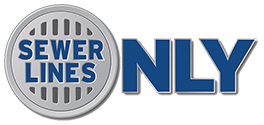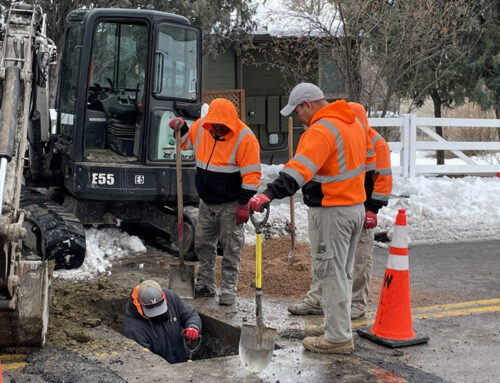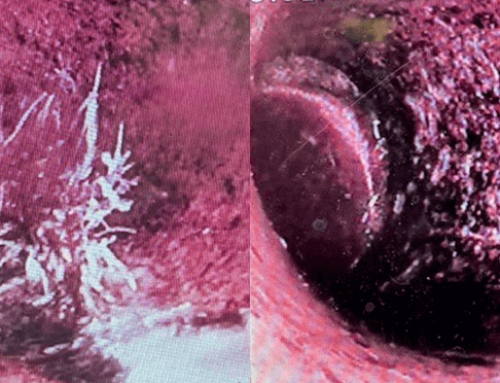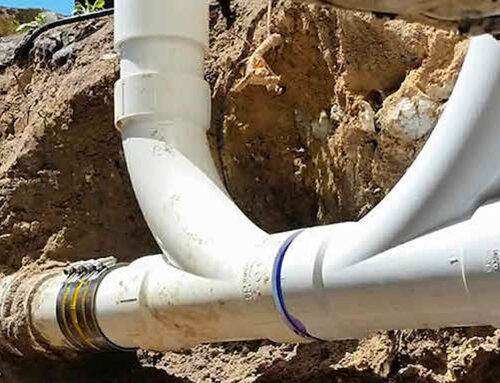Your sewer line is a vital part of your home’s plumbing system, but it’s often out of sight and out of mind. This is why it’s important to be aware of the signs that your sewer line may need an inspection.
What is a sewer line inspection?
A sewer line inspection is a visual examination of the inside of your sewer line, typically performed using a video camera. This allows a professional plumber to identify any problems with your sewer line, such as cracks, leaks, blockages, and root intrusion.
Why is it important to get a sewer line inspection?
There are several reasons why it’s important to get a sewer line inspection:
- To prevent sewage backups. A sewage backup is a messy and costly problem that can damage your home and belongings. Sewer line inspections can help identify potential problems before they cause a backup.
- To identify damage to your sewer line. Sewer lines can be damaged by tree roots, shifting soil, and even corrosion. A sewer line inspection can help identify any damage so that it can be repaired before it causes a more serious problem.
- To maintain the value of your home. A healthy sewer line is essential for a healthy home. By getting regular sewer line inspections, you can keep your sewer line in good condition and protect the value of your home.
When should you get a sewer line inspection?
There are a few different times when you should consider getting a sewer line inspection:
- When you buy a new home. It’s always a good idea to get a sewer line inspection before you buy a new home. This will help you identify any potential problems with the sewer line so that you can negotiate repairs with the seller.
- If you have frequent clogs. If you’re experiencing frequent clogs in your drains, it may be a sign of a problem with your sewer line. Getting a sewer line inspection can help identify the cause of the clogs so that it can be addressed.
- If you have a slow-draining toilet or sink. A slow-draining toilet or sink can also be a sign of a problem with your sewer line. A sewer line inspection can help identify the cause of the slow drainage so that it can be fixed.
- If you have a sewage odor in your home. A sewage odor in your home is a sign of a problem with your sewer line. Getting a sewer line inspection can help identify the source of the odor so that it can be eliminated.
- If you’re planning a major home renovation. If you’re planning a major home renovation, such as adding a bathroom or kitchen, it’s a good idea to get a sewer line inspection to make sure that your sewer line can handle the increased load.
What to expect during a sewer line inspection
A sewer line inspection typically takes between one and two hours. The plumber will insert a video camera into your sewer line and feed it through the pipe. The camera will transmit live video footage to a monitor, which the plumber will use to inspect the condition of your sewer line.
After the inspection, the plumber will provide you with a report of their findings. The report will include any problems that were identified, as well as recommendations for repair or replacement.
How to prepare for a sewer line inspection
There are a few things you can do to prepare for a sewer line inspection:
- Clear away any debris from around your sewer line access point. This will make it easier for the plumber to access the sewer line.
- Flush all of your toilets and run all of your sinks and faucets for a few minutes. This will help to clear any debris from the sewer line.
- If you have a septic tank, have it pumped out before the inspection. This will help to prevent any sewage from backing up into your home during the inspection.
Getting a sewer line inspection is a smart way to protect your home and your family from sewage backups and other problems. By being aware of the signs that your sewer line may need an inspection, you can take steps to prevent costly repairs and damage.
Many companies, such as Sewer Lines Only, provide free line inspections alongside their cleaning services. This dual;-servie approach offers several valuable advantages.
- Enhanced Functionality: Combing line cleaning with an inspection ensures a cleaner, more efficient line, reducing the likelihood of future issues.
- Accurate Assessment: Free inspections enable the timely identification of plumbing system issues, allowing for proactive repairs.
- Cost Efficiency: With this dual-service approach, you pay for one visit, streamlining maintenance and reducing costs.
Why a Sewer Line Inspection is Better Done by a Professional Rather Than DIY
While it is possible to inspect your sewer line yourself, there are several reasons why it is better to have it done by a professional.
Professionals have the experience and expertise to identify all potential problems with your sewer line. They know what to look for and where to look for it. Homeowners may not be aware of all the potential problems that can occur with a sewer line, or they may not know where to look for them.
Professionals have the specialized equipment needed to inspect your sewer line thoroughly. This includes video cameras, locating equipment, and other tools that allow them to see inside the pipe and identify any problems. Homeowners may not have this equipment, or they may not know how to use it properly.
Professionals can accurately diagnose any problems with your sewer line and recommend the appropriate repairs. Homeowners may not be able to diagnose problems accurately, or they may recommend the wrong type of repair. This can lead to costly repairs and further damage to the sewer line.
Professionals are licensed and insured. This means that they are qualified to perform sewer line inspections and repairs, and they are protected financially in case of any damage. Homeowners may not be licensed or insured, which means that they may be liable for any damage that occurs during the inspection or repair.
Here are some specific examples of the benefits of having a professional inspect your sewer line:
- Professionals can identify cracks and leaks in your sewer line. These problems can lead to sewage backups and damage to your home.
- Professionals can identify root intrusion in your sewer line. Tree roots can damage your sewer line and cause blockages.
- Professionals can identify collapsed or damaged sewer pipes. These problems can lead to sewage backups and sinkholes.
- Professionals can identify problems with your sewer line joints. These joints can weaken over time and lead to leaks.
- Professionals can use video camera technology to inspect your sewer line from the inside out. This allows them to see all areas of the pipe and identify any problems.
Overall, it is best to have your sewer line inspected by a professional. They have the experience, expertise, and equipment to inspect your sewer line thoroughly and identify any potential problems. They can also accurately diagnose any problems and recommend the appropriate repairs.
Sewer line inspections are necessary for property managers for a number of reasons.
Protecting the health and safety of tenants is paramount. A sewer line backup can be a serious health hazard, as it can expose tenants to sewage and other harmful bacteria. Sewer line inspections can help to identify and prevent sewer line backups, protecting the health and safety of tenants.
Preventing property damage Is another good reason to have a sewer line checked. A sewage backup can cause significant damage to a property, including flooding, mold growth, and structural damage. Sewer line inspections can help to identify and repair sewer line problems before they cause a backup, preventing costly property damage.
Reducing maintenance costs is another aim of getting sewer line inspection. Sewer line inspections can help to identify minor sewer line problems early on before they become major problems that require expensive repairs. By getting regular sewer line inspections, property managers can save money on maintenance costs in the long run.
Maintaining the value of the property. A property with a healthy sewer line is more valuable than a property with a sewer line that is in poor condition. Sewer line inspections can help to ensure that the property’s sewer line is in good condition, which can help to maintain the value of the property.
In addition to these general benefits, there are a few specific reasons why sewer line inspections are especially important for property managers:
- Property managers oversee multiple properties. This means that they need to be able to efficiently manage the maintenance of all of the sewer lines on their properties. Sewer line inspections can help identify and prioritize sewer line repairs, making it easier for property managers to manage their maintenance budgets.
- Property managers are responsible for the well-being of their tenants. This includes protecting their tenants from health hazards and property damage. Sewer line inspections can help property managers fulfill this responsibility by identifying and preventing sewer line problems.
- Property managers need to maintain the value of the properties they manage. This includes keeping the sewer lines in good condition. Sewer line inspections can help property managers maintain the value of their properties by ensuring that the sewer lines are in good condition.
Overall, sewer line inspections are an essential part of a property manager’s maintenance program. By getting regular sewer line inspections, property managers can protect the health and safety of their tenants, prevent property damage, reduce maintenance costs, and maintain the value of the properties they manage.
Here are some tips for property managers to get the most out of sewer line inspections:
- Get regular inspections. Sewer line inspections should be performed at least once a year, but they may need to be performed more frequently if the property is older or has a history of sewer line problems.
- Choose a qualified professional. Sewer line inspections should be performed by a qualified professional who has experience in inspecting sewer lines.
- Get a written report. The professional should provide you with a written report of their findings, including any problems that were identified and recommendations for repair.
- Follow the plumber’s recommendations. It is important to follow the professional’s recommendations for repair in order to prevent future sewer line problems.
By following these tips, property managers can ensure that their sewer line inspections are effective and that their properties are protected from sewer line problems.









